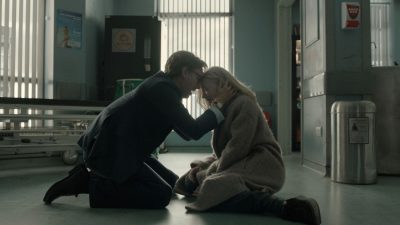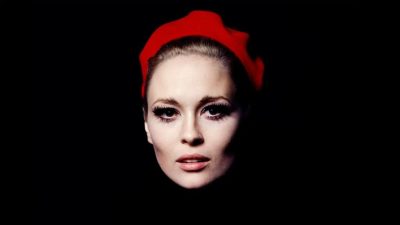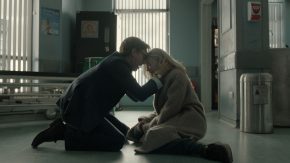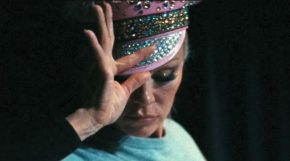Take two Hungarian drummers, a Chilean bass guitarist and an American guitarist. Shake them well and serve them fresh and hot on Müpa’s stage. How could you spice them even more? Well, what would you say if I told you that the guitarist plays with a special technique, invented as an adolescent and constantly developed throughout the years? I asked Stanley Jordan about the “tapping technique”, the reactions of fellow musicians and the audience, and naturally about the upcoming Meeting Stanley Jordan concert on the 17th of November.
Your first instrument was the piano, and then you switched to the guitar. What were your reasons for choosing these respective instruments? As you were very young, what role did adults and musical role models play in that process?
I started taking piano lessons at age seven, but I was already playing from the age of three. We had a piano in the house because my mother was an amateur pianist and my older sister was taking lessons. Thanks to my mother, there was always classical music in our home and I’m very fortunate to have had that exposure. Then, when I was eleven, we went through some difficult times as my parents got divorced and we moved to a lower income level. They had to sell the piano, but I was able to persuade them to get me a guitar.
A lot of people learn to play instruments, but most of them never invent new techniques. How did you come to the idea and the practical implementation of the “tapping technique”?
As a young teenager, I loved the expressiveness of the guitar but I missed the orchestral complexity of the piano. I wanted to stay with guitar, but bring to it some of the orchestral possibilities of the piano. So I experimented with new ways to play and eventually developed what I called the “touch technique”. The term “tapping technique” is also popular, but I prefer “touch technique” because I actually use a variety of related techniques including but not limited to tapping the strings.
When you invent something new in arts, there is always the risk that people won’t understand it and react negatively. How could you overcome the fear of being mocked for your brand new technique? Or were you sure, deep in your heart, that it has to be a great success?
From the start, there were people who didn’t appreciate what I was developing. One slightly older musician in my neighborhood was greatly concerned because he thought I had a great future and I was throwing it all away! But I knew I had to do this because I had music in my head that I could not make on the guitar. Also, many of my favorite musicians were innovators, such as Jimi Hendrix and Sun Ra, so I got inspiration from them.
How do you usually feel when you enter the stage? Do you communicate with your audience? Do real-life reactions influence, for example, your improvisations?
I try to enter the stage with an open mind because improvisation for me is about being in the “here and now”. Many of the sages from the East have told us that the key to spiritual growth is to be fully present in the moment. Music accomplishes this by making the moment so profound and wonderful that we can’t be anywhere else. When an audience is there and truly with me, I feel inspired because I feel that anything is possible.
You cover well-known songs in a way that can be a kind of rewriting, reinterpreting the original one. What motivates you when choosing pop, rock, jazz or classical pieces? What does a song need to inspire you for a cover?
If I’m going to cover a song, it has to be a song that I truly love – that I want to play again and again. Also, I want to bring something new to the song that I feel is worth showing. A new arrangement or perhaps a whole new perspective. For example, my version of Eleanor Rigby portrays loneliness not as a sad, brooding emotion but as a pent-up explosive emotion because that’s how I experienced it when that song was originally popular.
In Budapest, you are going to play with Christian Galvez and the Hungarian tHUNder Duo. Have you collaborated with them previously? What do you think about their music and your joint work? How did this production come to be?
Christian and I performed together in Chile and Hungary and in Italy in trio with Billy Cobham, I separately performed with tHUNder Duo in diverse places such as Hungary, Romania and Cape Verde. Thanks to my agent, Mrs. Marinella Colombo, putting it all together was destiny because these were some of my favorite collaborations. In this group, I get to be both a collaborator and a fan. Plus, these guys are all beautiful people and great friends. Christian Galvez is a legend and he has brought a whole new vocabulary to his instrument. Kornél and Gábor are truly gifted musicians who bring an engaging spirit and a great musical chemistry. Their music has many diverse influences that they weave together seamlessly. When we all play together, no two performances are the same, so I always look forward to it. With this group, I have to enter the stage with an open mind every time because I know something new and magical will happen.



























Comments